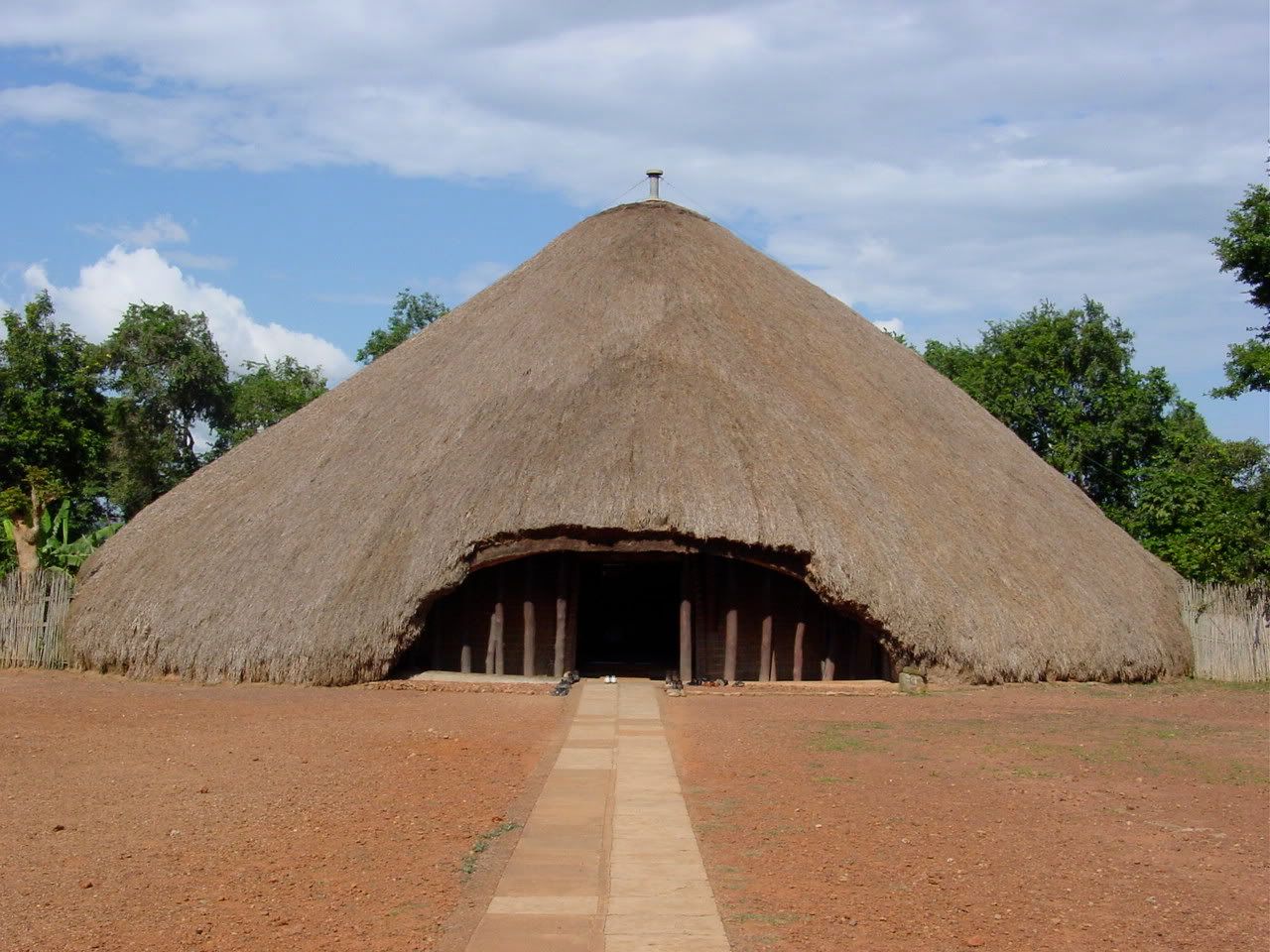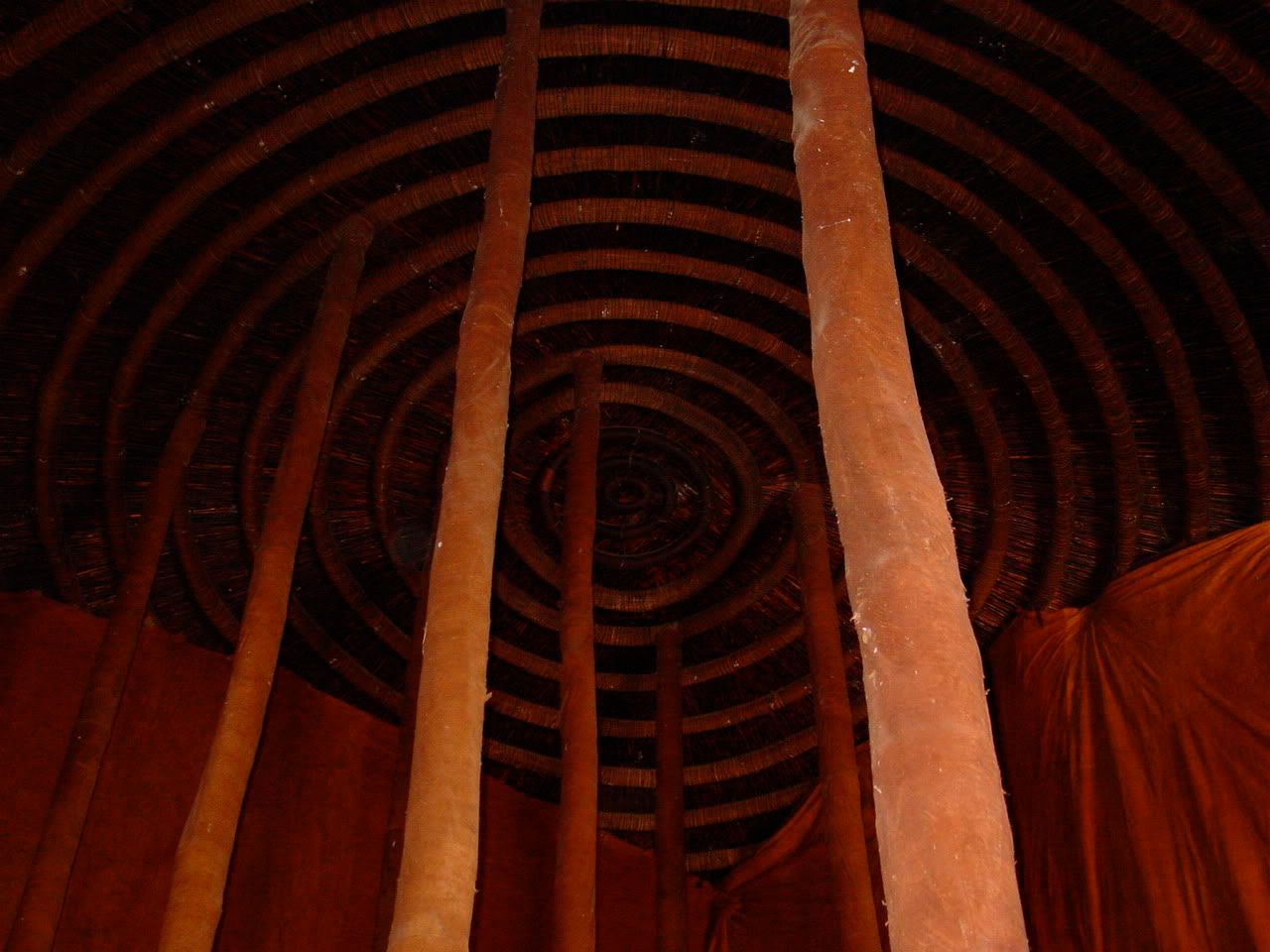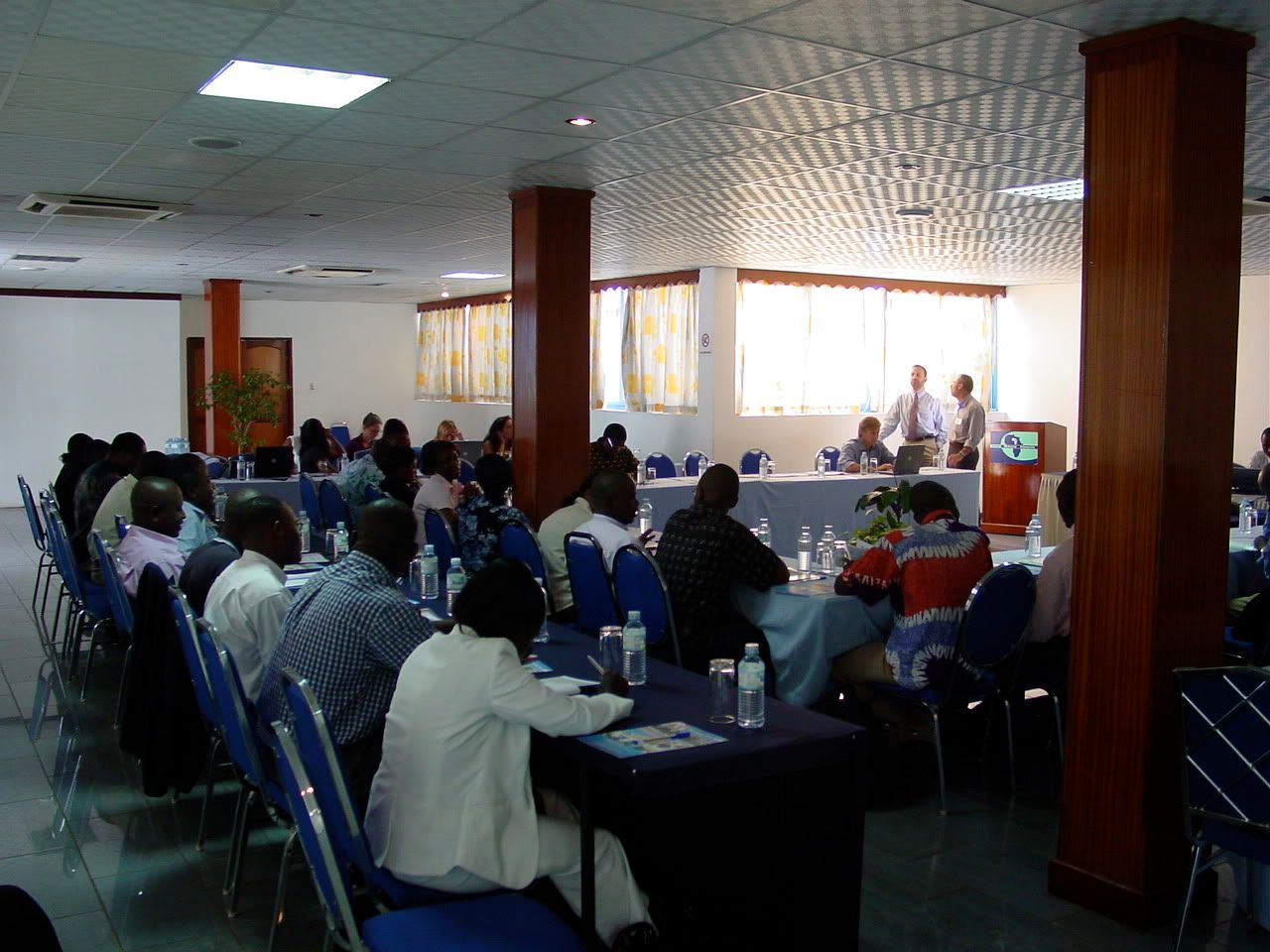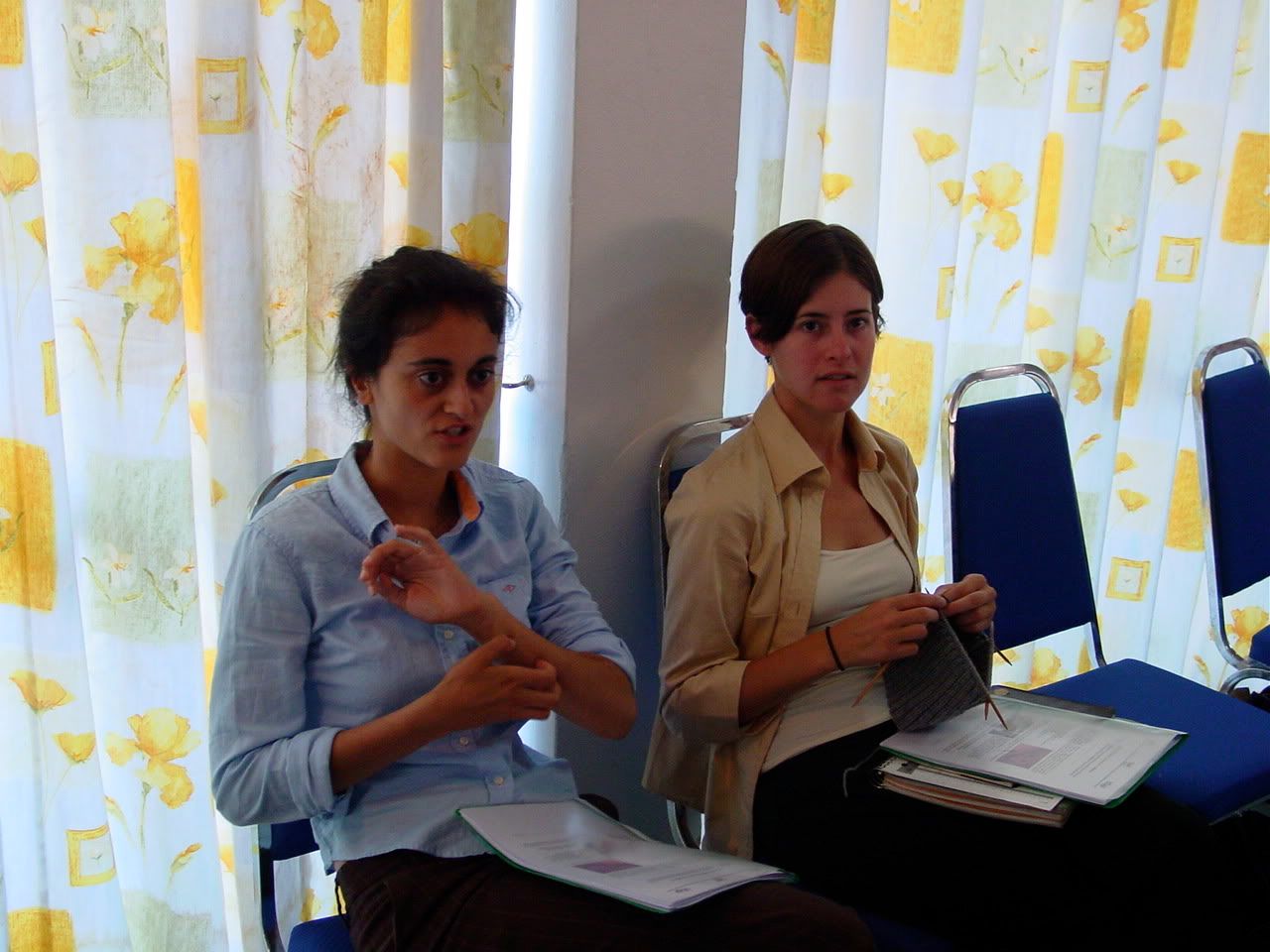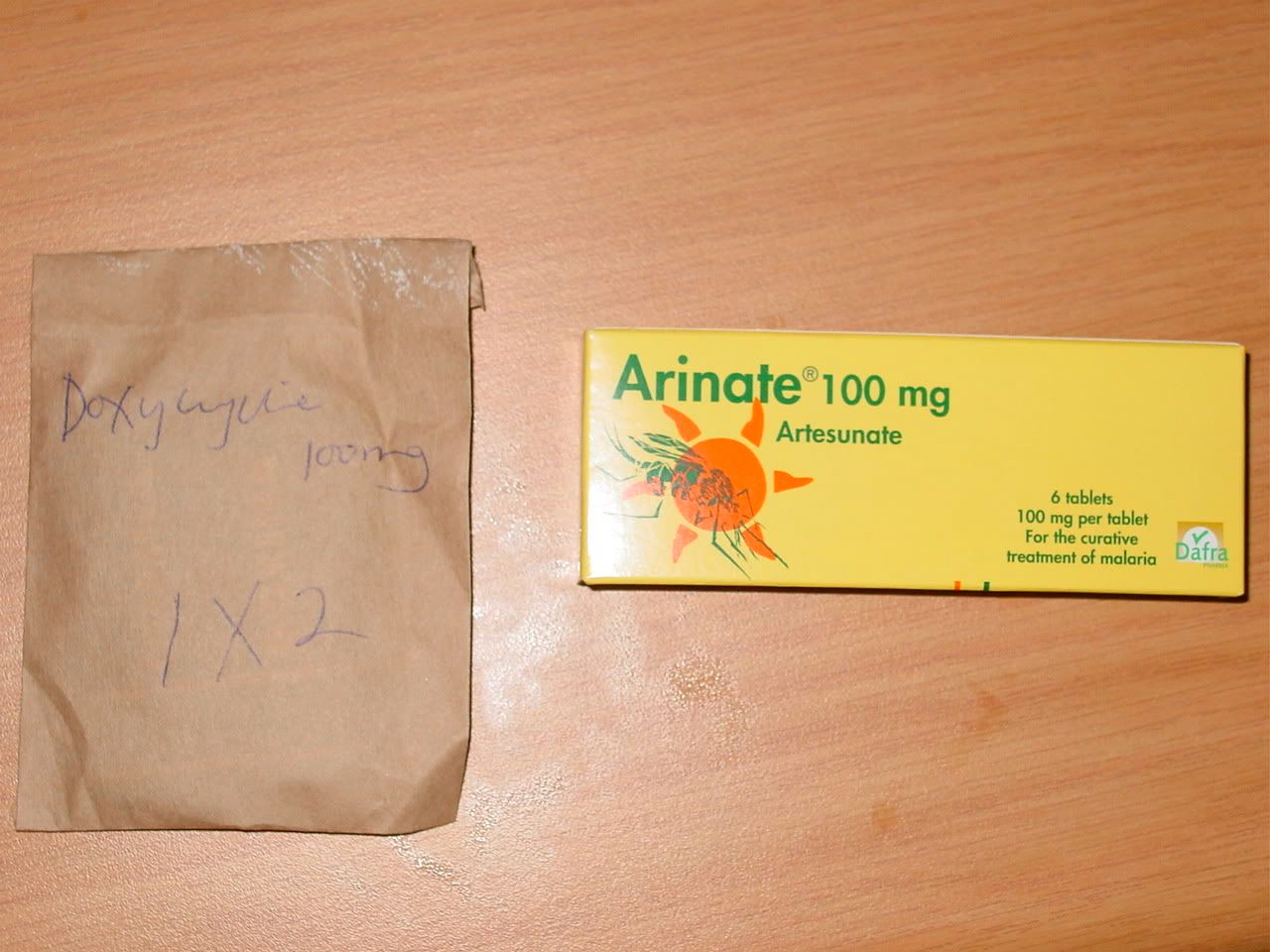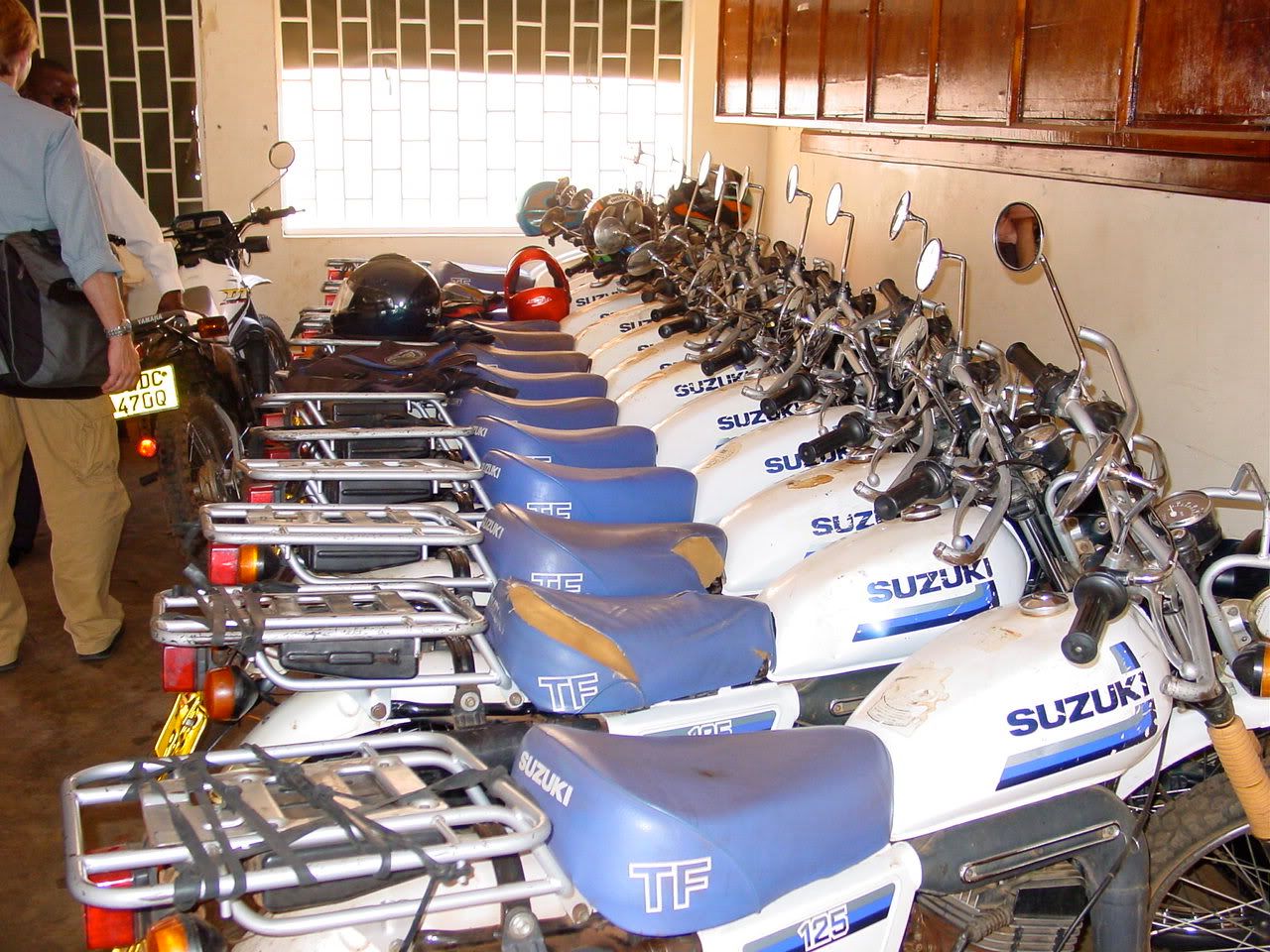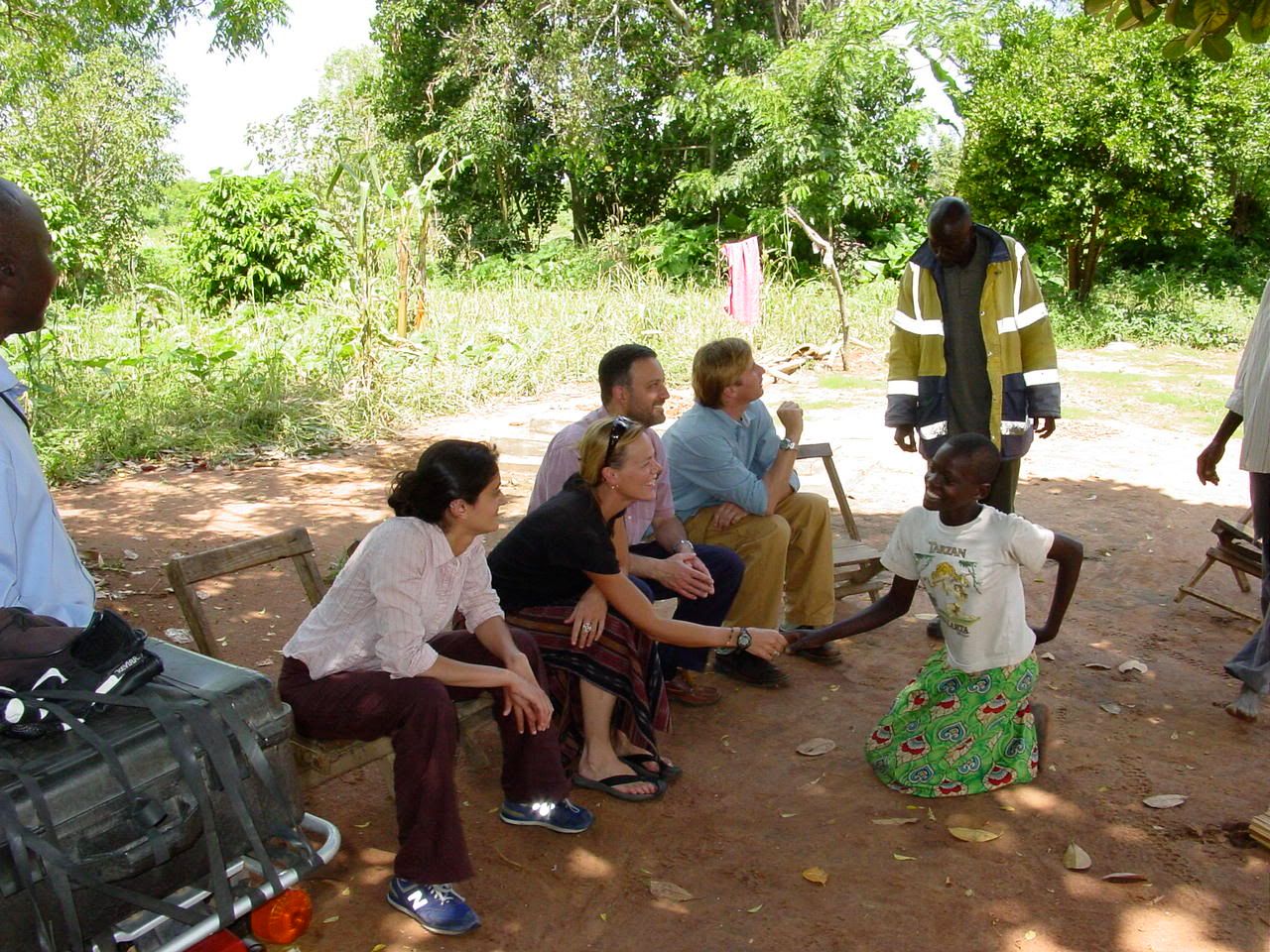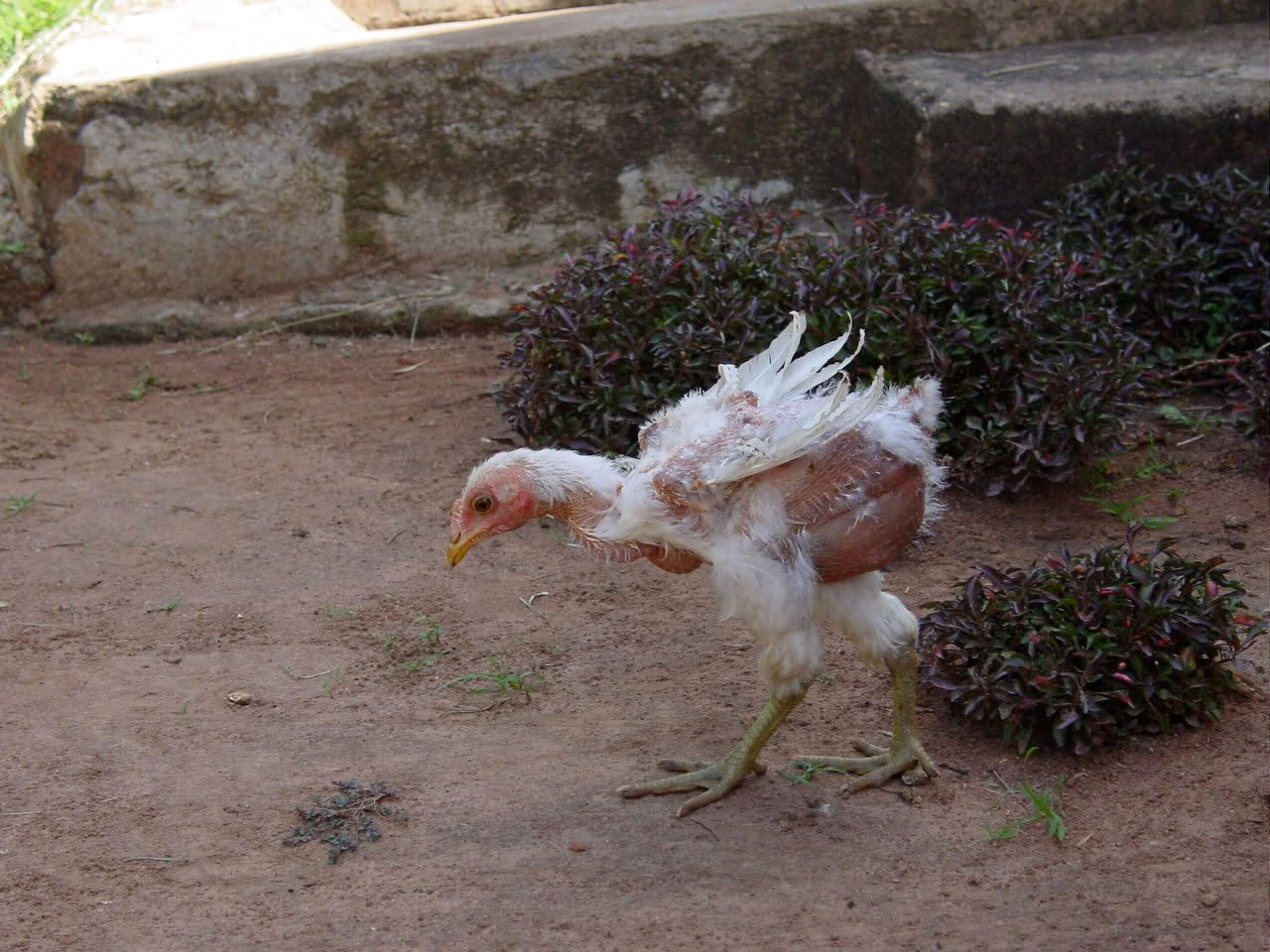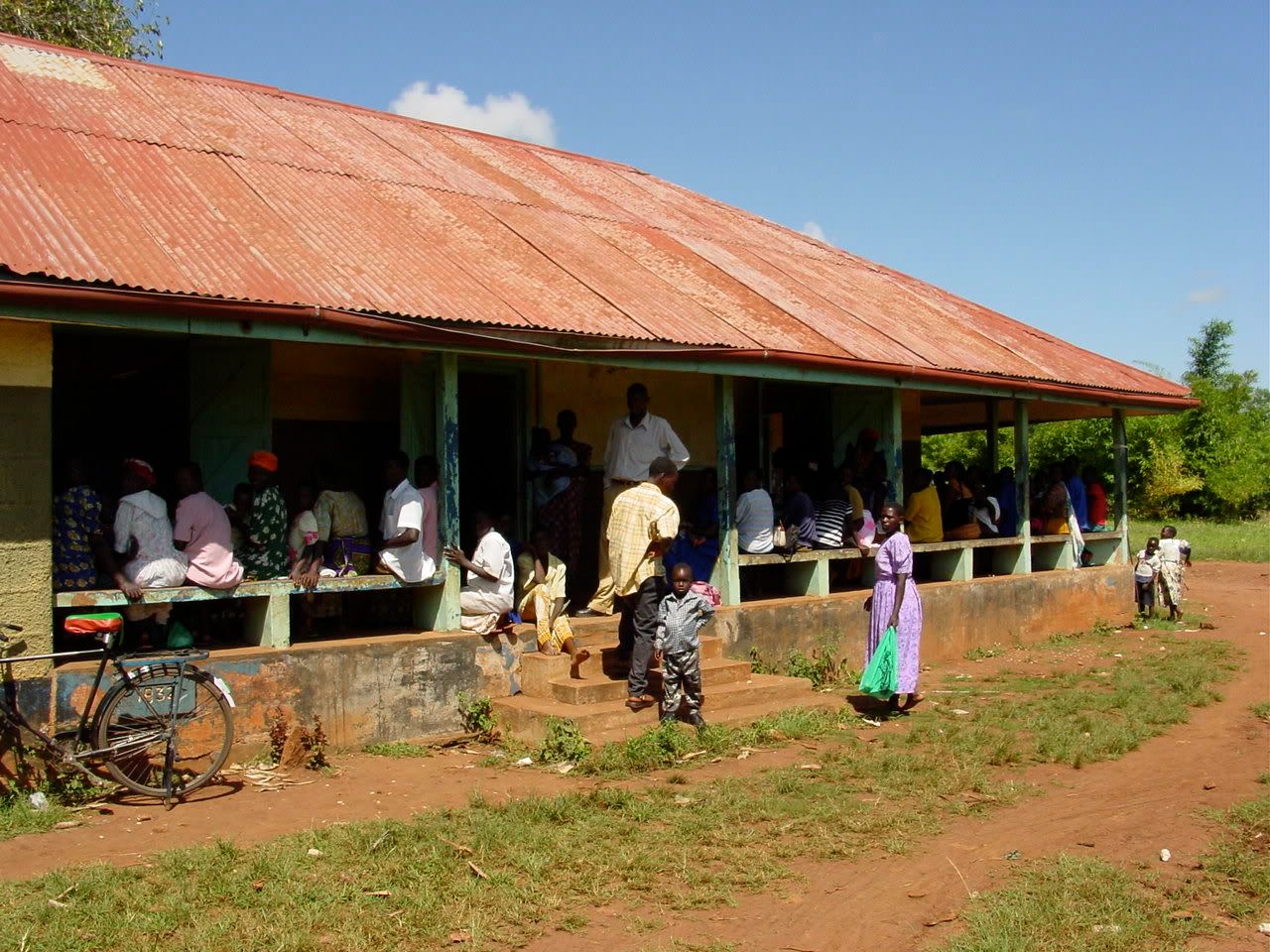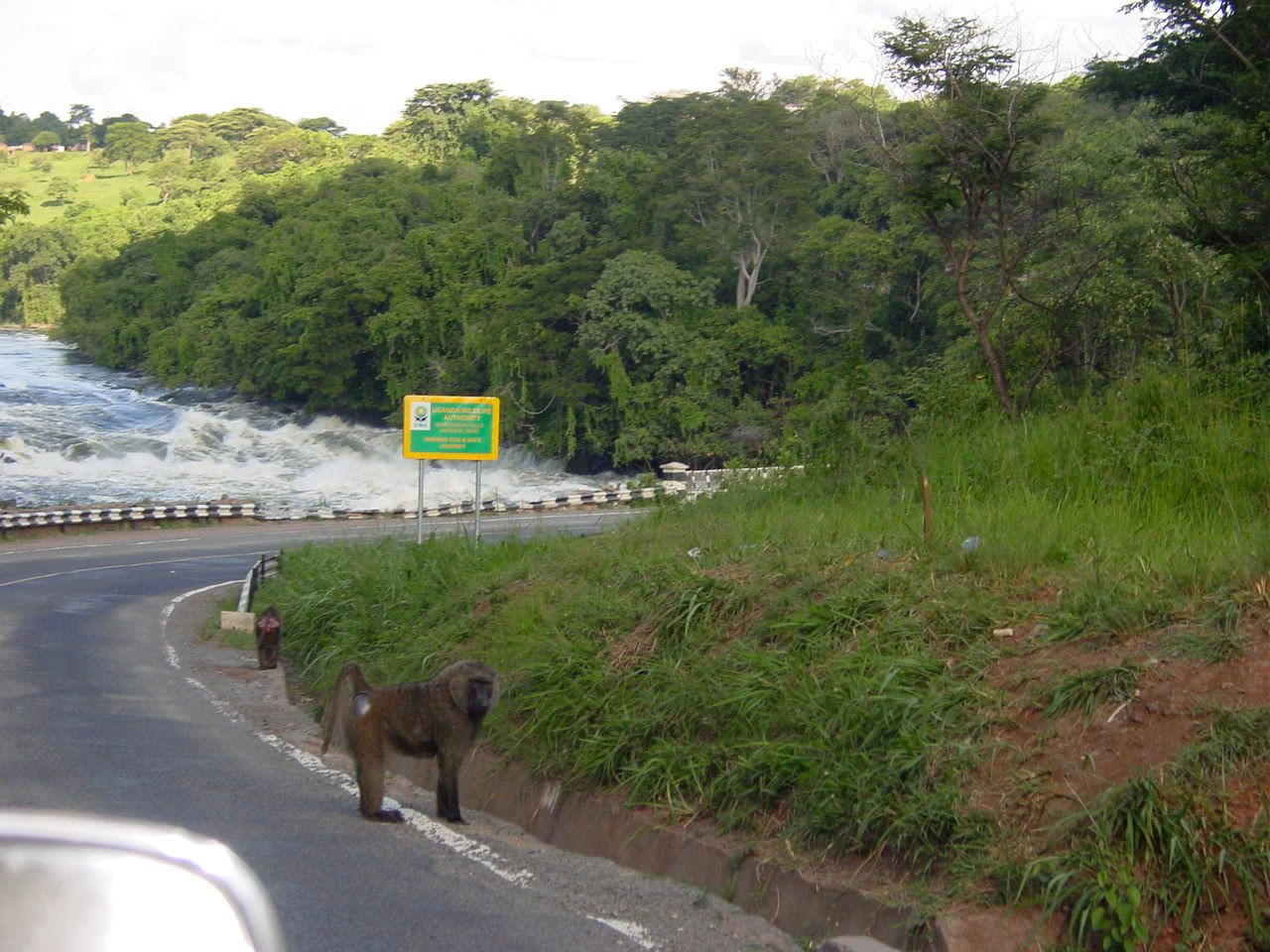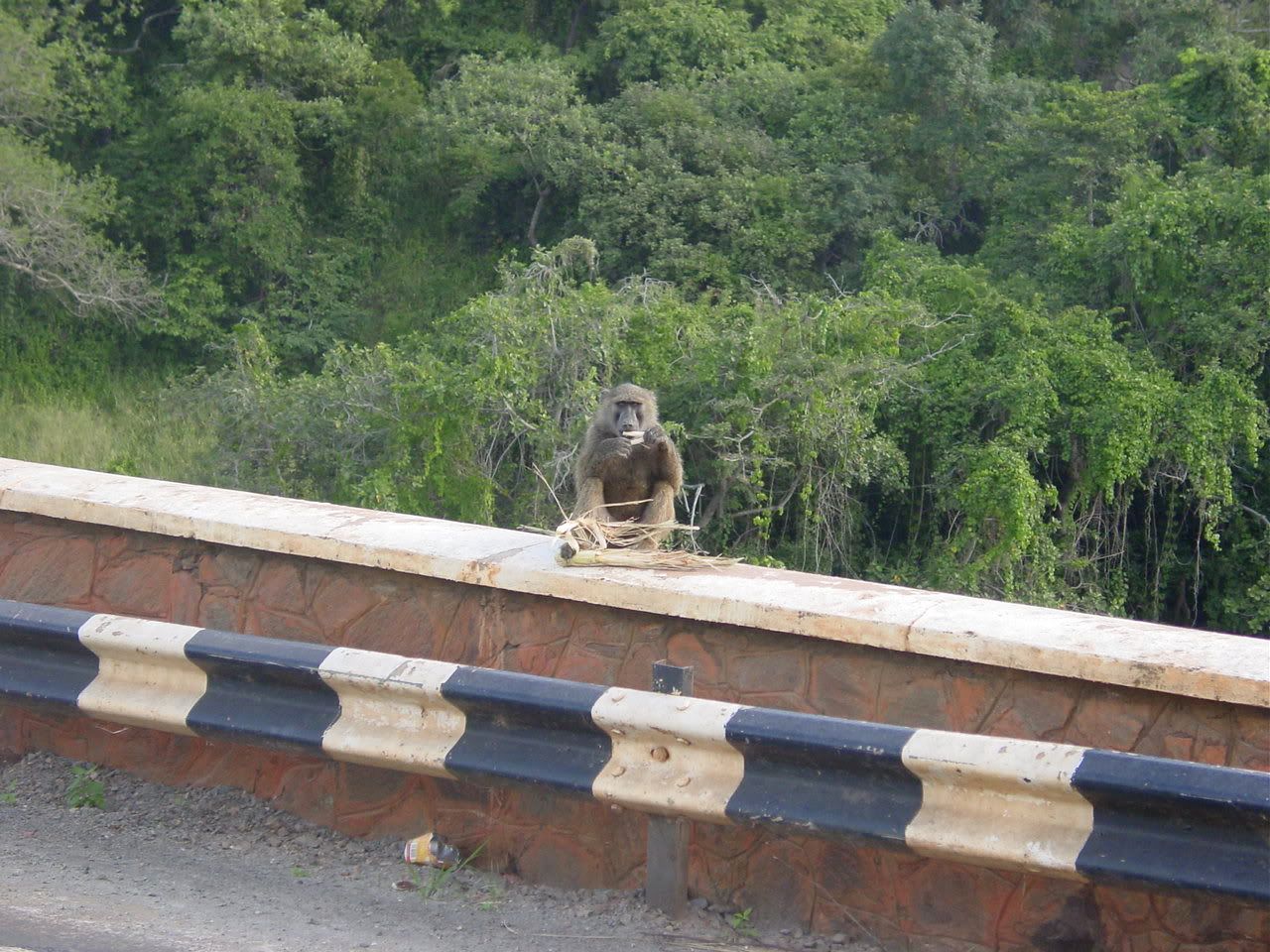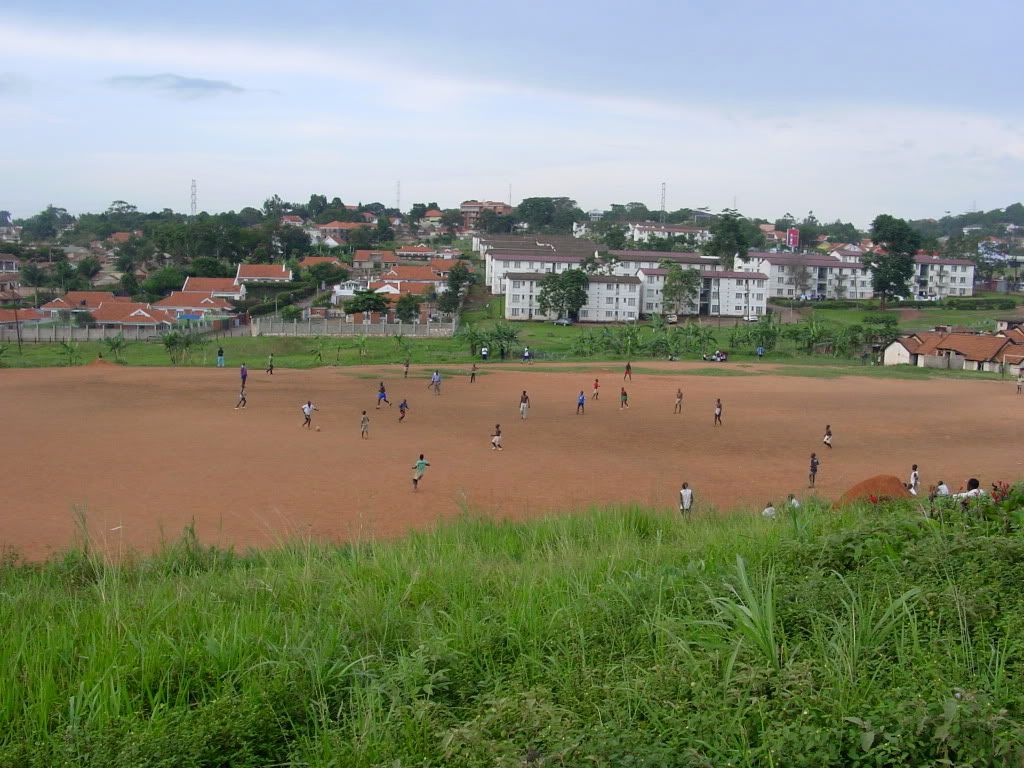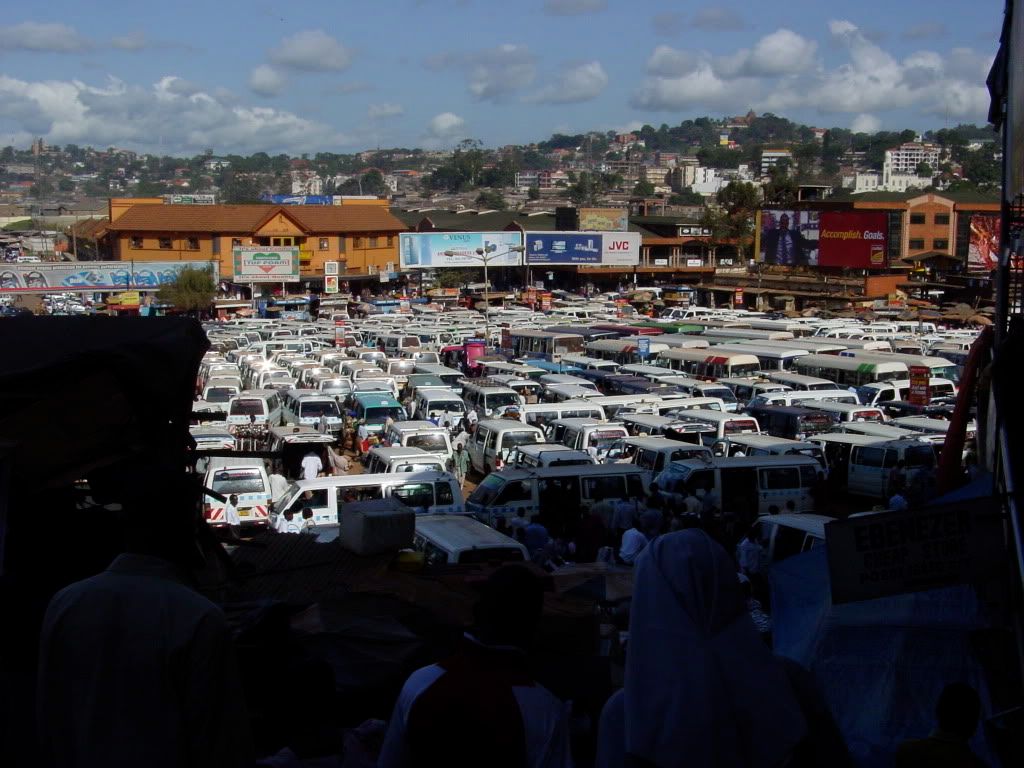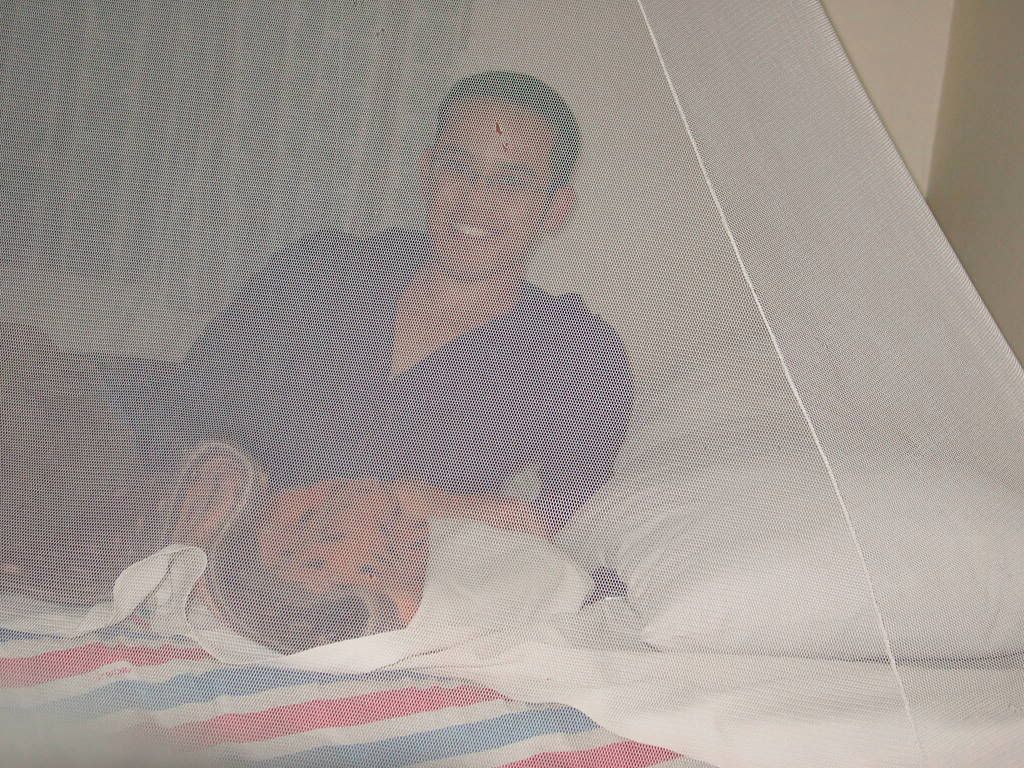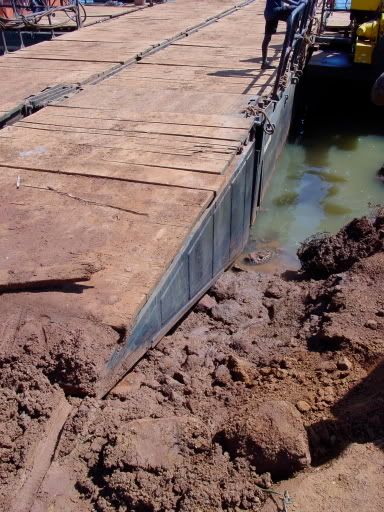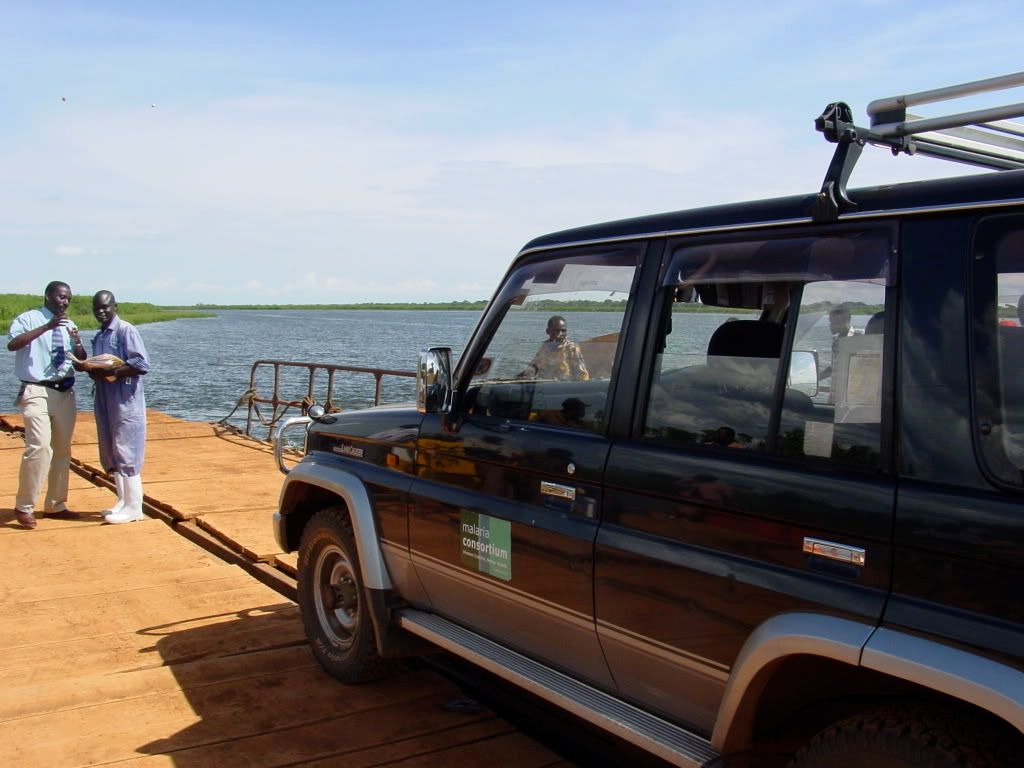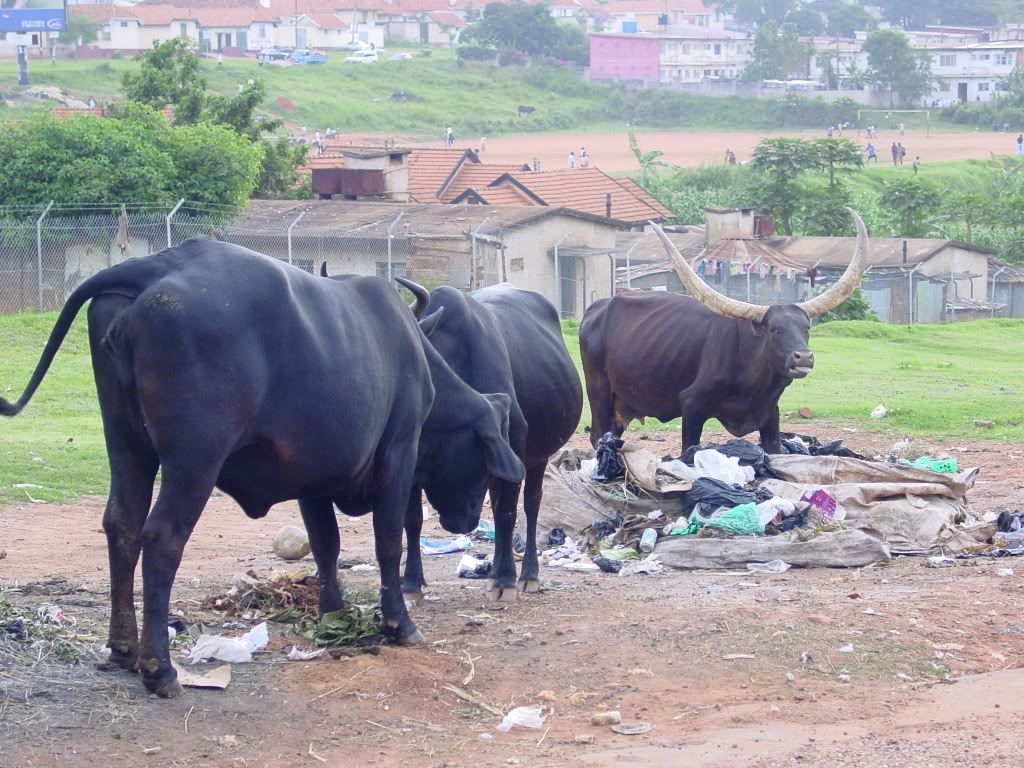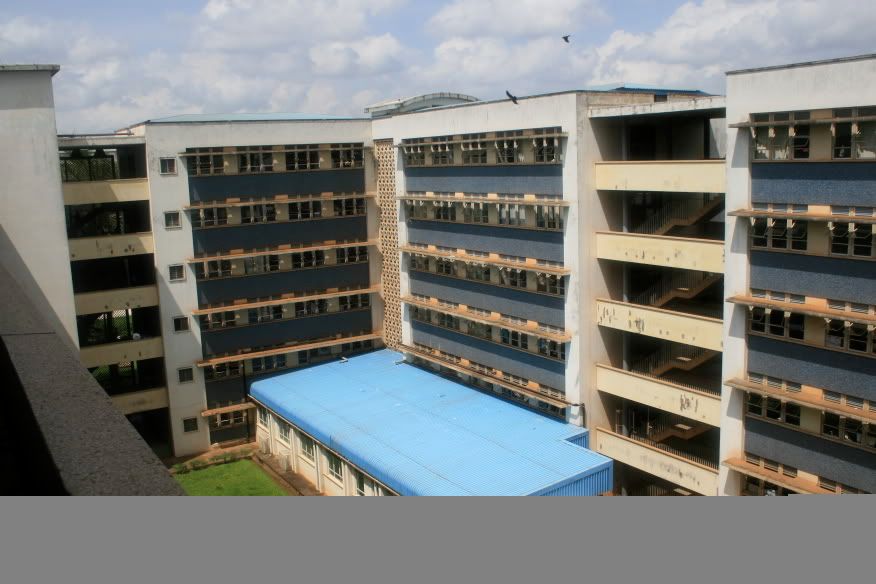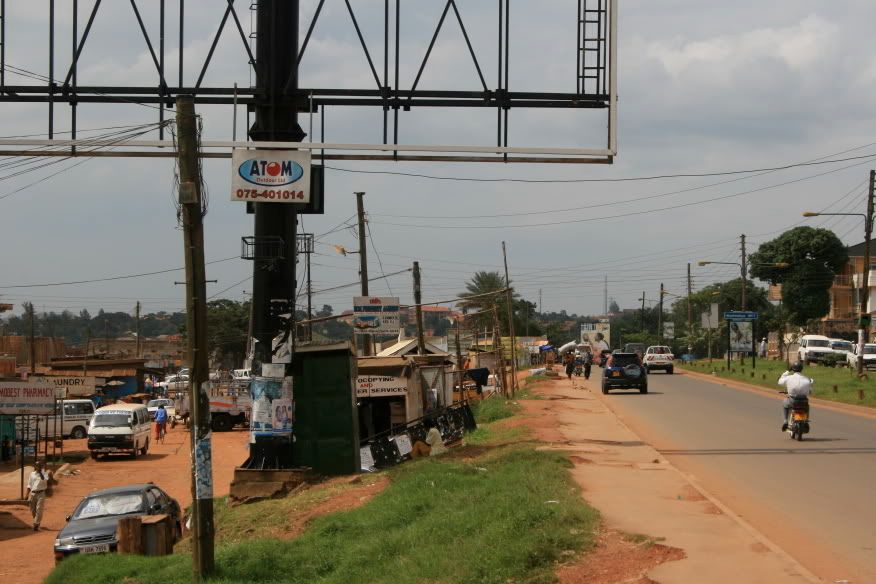After a 2 days of flying, I'm finally here in Kampala, Uganda. Besides one minor scare at SFO, the flights were pretty uneventful, and rather relaxing. I got to SFO at 4:30 am, thanks to Paula's excellent driving. I remember that for international flights, getting to the airport 3 hours ahead of time is a good thing (my flight was at 8-ish), but then I realized that my first flight was domestic (into Houston, then from Houston to Amsterdam). Fortunately, they had an earlier flight going into Houston, so they decided to put me on that flight... but then a minor issue came up. They couldn't find my name in the computer, at all. I was starting to worry that I'd never get to Uganda, so I had to break out my computer in the airport and try to figure out my confirmation codes and reservation numbers... so $10 dollars later (you ripped me off T-mobile) and with my itinerary in front of me in digital form, I went back to the desk, to find that those confirmation numbers weren't Northwest's normal confirmation numbers (I had gotten my trip booked through the department's travel agent, so I had travel agent confirmation numbers).
Finally, things got figured out, and we weighed my bags. I was actually carrying a ton of stuff- a backpack with my laptop in it, and a ton of paperback books, a second laptop bag with a laptop to be used by some other researchers here associated with the project in Uganda, a suitcase full of filter paper for the labs here in Uganda (and paper is heaaavy- like carrying textbooks almost, since it's so densely packed), and a suitcase of my own private stuff. Max weight in check in luggage = 50 lbs, if any of you plan to go to Uganda. My weight = 55 lbs and 48.5 lbs, so after taking out a few books and redistributing weight, and carrying a few extra pounds in my own backpack, I was on my way.
Flying into Houston was pretty uneventful, but the actual taxi-ing after landing was pretty interesting. The plane actually drove on an overpass... over normal traffic. It was the strangest thing- it seemed like planes should not be driving on wheels over normal streets, but apparently, in Texas, it's fine. I always thought airport security was all about keeping cars and trucks and stuff very very far away from planes and the runway, but it's not the case in this airport. Eventually I found my way to my next flight, and flew into Amsterdam.
Amsterdam's airport is a pretty nice classy place, much like SFO in many regards. Museum exhibits with oil paintings, and... a casino. Besides flying into Las Vegas, this is only the second time I've ever seen gambling in an airport... but this was even on a bigger scale than Las Vegas, if you can believe it. Las Vegas airports have simple slot machines, stuff that you can leave alone, without needing real people to deal you cards or hand you chips and cash. Amsterdam had full on roulette tables and the works... including the indoor smoking that I've forgotten exists since I live in California, where laws prohibit smoking indoors.
The most interesting thing I noticed about the Amsterdam airport was a kiosk that offered whirlwind tours of the city, while you waited for your connection flight! It was kinda funny, since most of the people who were stopping were asian business men, but it wasn't a bad idea. I had 4 hours of down time, and I was kinda tempted, since I'd probably never be in Amsterdam again, or at least, not in the planned/forseeable future.
At all the airports I flew into (with the exception of Entebbe, Uganda, which I didn't check) there was wireless internet, which was nice, but it was all for a fee, something like either 10 dollars US or 10 euros (which is like... 20 dollars US nowadays?). The thing that really sucks is that at each airport, a different company has a monopoly on internet service there... meaning that even if you buy their 10 dollar/euro plan (24 hours of internet access at that airport) you really don't use more than an hour of it... and the next airport you fly into has a different provider, and they want you to pay for 24 hours of access on THEIR plan... it would have been much nicer if all the airports had the same provider, so I could actually take advantage of all the internet time I paid for...
Well, after a long day/2 days of flying (~3 hours from SFO to Houston, 8 hours to Amsterdam, and 9 hours to Entebbe) I finally arrived in Uganda. Entebbe is a very small airport, at least compared to the plane I flew in on. KLM (Royal Dutch airlines) flew us in on a two story/doubledecker jumbo jet, and we all unloaded right onto the runway, and walked into a small building with immigration (really easy to pass through, just have 30 USD ready to buy your visa to get into the country), extremely fast baggage claim (waited maybe 5 minutes for my luggage- and the plane did have quite a few people on it, so it's fast by american standards for sure), and an easy customs (just walked through the nothing to declare door, no hassles). Surprisingly, there were a lot of Caucasians entering the country- and even more surprisingly, around 50% of the "native Ugandan" immigration line was Caucasian as well- a lot of expatriates I imagine.
At the airport, Nuhu (a dedicated driver hired by the UCSF project) was waiting for me, with a 4 seater truck (like an extended cab). We piled in the luggage, and started driving. Driving in Uganda is like fusing the UK with China. Which side of the road you drive on and car construction are English style, with steering wheel on the right side of the car, and you drive on the left side of the road. But with regards to the rule of the road, it's all Chinese. Roads are just like in China, narrow 2 lane roads, that are driven very fast (if there's no traffic, it's as fast as you dare to drive, and Ugandans are daring people). Passing slow cars happens in the oncoming traffic lane, just like in China, and it makes for a pretty interesting ride.
I chose to drive a stick shift, mainly because it would be fun, and so I would stay awake while I drove (I was really feeling tired for some reason, every time I sat behind an automatic car). If I was in Uganda, there'd never be any reason to be asleep at the wheel- traffic is rather crazy, with taxi-vans (14 people fit in one minivan... clown car style) half pulling over randomly wherever they want on the road, and our car swerving around them, forcing oncoming traffic to go to the edge of the road so there wouldn't be any accidents. (I'm currently in the house with my sole other housemate, Derek, a med student at UCSF, who worked in the ER's for a while in the past week. He says there are a lot of people who come in, hit by cars... and I can believe it). Pedestrians just run across the street, and with the speed that cars drive here, it's like crossing the freeway. Lots of foot traffic on the side of the road also makes night time driving pretty crazy. In the main cities, driving is all about asserting yourself, pushing your car's nose into gaps and forcing people to let you in. It's pretty fun, and after my past summer in China, it was surprisingly stress free. However, the pollution was actually worse than I expected. I didn't expect there to be as much industry, and so I thought that pollution would be pretty minimal- but most cars here run on diesel, and a lot of them are really really smoggy. Some of them put out so much smoke you'd think they're on fire or something... clouds of black smoke coming out of the backs of many cars, and it's rather hard to breathe when you get stuck behind those cars. I was pretty glad actually that Nuhu a daring driver.
The roads are decent, but pretty bumpy. They're paved, but dips/almost potholes are pretty common. Between cities, there are a lot of hut/shack one room buildings next to each other, selling goods, and there are no sidewalks, just dirt on the side of the road. It was night time when I was driving into Kampala, so I could only barely see Lake Victoria by the reflection of lights off the lake, and the trees here looked very different than what I'm used to in Cali. It's rather stunning, to come from a Caucasian dominated country into Uganda- I didn't see a single Caucasian on the streets, and there were lots of Ugandans hanging out (I guess a Friday night is the same wherever you are in the world). It's a bit intimidating, realizing that you're surrounded by people who look very different than you, and who stare at you as you drive by. It's also a bit unnerving realizing that if they took everything that belonged to you, and sold it, they'd probably make more money in one night than they would make working for 10 years... It's a thought that really makes me think hard on how lucky I am to have been born where I was born, and to the parents I was born to.
After turning off the main roads in Kampala onto a dirt road, full of potholes and cracks, we got into the walled "complex" where the UCSF house is. It's a really nice setup actually, a very nice house. At night, there's an armed guard with what looks like an automatic rifle who opened the metal gate for us, and let us in. The house is 3 stories, with a three bedroom room on the third floor, a 2 bed room and a single master bedroom on the second floor, and a nice living room, dining room, and kitchen on the first floor. Wood furniture, and everything is really posh. It reminds me of my experience in China- I thought I'd be staying in a much worse place than I actually got there too- it was pretty posh as well. Goes to show that you shouldn't underestimate countries, just because they aren't first world superpowers. Of course, there is a lot of poverty in Uganda, but like in many places, there is definitely a big division between the rich and poor.
After waking up and taking a very cold shower (the hot water didn't come on) I met my housemate, Derek. He's a Stanford alumni, class of 1997, so he's a bit older than I am. He's currently a Med student at UCSF, and he does a lot of research in the labs on bone development and formation. He's here in Uganda doing some surgery stuff, and has been here for a week- he'll be here another week or 2, so it's good that he's here to show me around. Power here is somewhat intermittent- we get power for one day, then the next day we run on battery power, then the battery charges the next day, and so on, so forth.
Oh, I forgot to mention the Mefloquine. So the anti-malarial pills that I'm taking are called Mefloquine, and they're famous for their hallucenogenic/vivid dreaming side effects. The alternative is a different, newer drug (Malarone) that has fewer side effects, but the advantage of Mefloquine is that it's cheaper, and you take it once a week, unlike the new drug which is daily. Apparently, to minimize the side effects, you want to take Mefloquine early in the day, and with lots of food and water. I've only had one vivid dream though, out of the 8 days that I've been on this medication. It was a "scary" dream.... or it was supposed to be frightening. I remember while I was dreaming that the atmosphere was scary, but as the dream progressed, I kinda lucidly decided that there really wasn't anything to be afraid of... and there wasn't. The dream was about some creature/man that had organic tubes that emerged from his calves. It would have been scary if he ate people with that... but he ate pennies and nickles only. And not just pennies and nickles, only the Zinc that was inside of the pennies and nickles.... so what started as a scary dream, became a rather weird one really quickly. It was a half-lucid dream in that I couldn't control what was happening, but I could think about the dream, and was able to tell myself that it was really just a weird dream, and not scary, so when I woke up, I felt fine.
Apparently, the drug has more of an effect on people AROUND me than on me personally.... people who fall asleep in the same room as me seem to have crazier dreams than I do. Paula said that she had vivid dreams twice, and Jose, whose house I crashed at before I left, dreamt that me and a few of my friends into the Risk boardgame setting- we were physically represented by the army colors red, gray, etc. and he just said the rest of the dream was kinda crazy... weird eh?
Well, that ends this rather lengthy post for now. It's Sunday here, and everything is closed, except for restaurants. It's a bright sunny day, and I haven't been bitten by mosquitoes.... yet.
